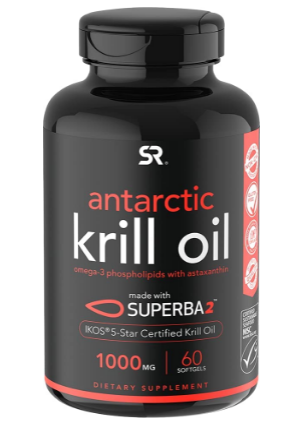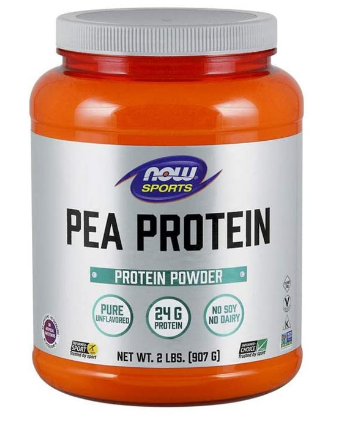Top & Best Multivitamin Review 2022 – How to Select Ultimate Buyer’s Guide
Multivitamin: How to choose the best in 2022
Today we are going to talk about a practical and effective supplement to replace nutrients: the multivitamin.
Because it contains a wide variety of vitamins and minerals in a single dose, the multivitamin is ideal for treating deficiencies and preventing diseases.
In the midst of so many options, we will show you in this article what you should take into account before buying the ideal multivitamin that will meet your needs.
First, the most important
- The multivitamin offers effective doses of vitamins and minerals that the body needs for its proper functioning.
- It is necessary to follow a doctor to include the multivitamin in the diet to avoid excess, which can aggravate or generate diseases.
- We will show you what are the characteristics that differentiate one type of supplement from another and how to choose the ideal multivitamin.
You may also like
- Cardiac monitor: How to choose the best model in 2022?
- Yoga Mat: Which is the best in 2022?
- Walk simulator: What is the best of 2022?
Best types of multivitamin: Our favorites
Those looking for a multivitamin want to make up for the lack of nutrients or even maintain good health. Knowing this, manufacturers invested in options for all purposes.
Therefore, below, we will present to you the five best types of multivitamin available on the market.
- Special multivitamin for women
- Excellent cost-benefit multivitamin
- Multivitamin in tablets
Buying Guide
At first glance it may seem simple to choose the multivitamin. But you need to know your nutritional needs, in addition to the advantages and disadvantages of this type of supplement.
Therefore, we created this Buying Guide with all the information you will need to make the best decision when purchasing the multivitamin.
What is a multivitamin?
The multivitamin is a supplement composed of a wide variety of vitamins and minerals, which are essential for the functioning, growth and development of our body.
As vitamins and minerals are absorbed through food, in cases of deficiency or malabsorption it is necessary to replace them through supplementation.
To avoid you having to consume various types of supplements, the multivitamin appears as an effective and practical option.
That’s because, within a single multivitamin, more than 25 vitamins and minerals can be found among different ones.
The fact is that multivitamins, by combining nutrients in their composition, prevent you from having to buy and ingest several capsules a day.
Today, as we will see later in this article, there are several options for multivitamins, with different combinations, that serve different purposes.
What are the basic nutrients that make up a multivitamin?
As we have seen, the nutrients that make up multivitamins are vitamins and minerals. Vitamins play several roles in the development of the body and in organic metabolism. Minerals act mainly in the formation and maintenance of the body’s bones.
Although the combination of vitamins and nutrients varies between one multivitamin and another, it is possible to know which are the main ones used in the most complete supplements. Are they:
Vitamin A (retinol and betacrotene)
Vitamin A is important for eye health, skin, growth, in addition to having antioxidant action and being essential to prevent infections.
Deficiency of this vitamin can cause vision problems, dryness of the skin, reduction of red blood cells and formation of kidney stones.
Complex B vitamins
There are eight B vitamins: thiamine (B1), riboflavin (B2), niacin (B3), pantothenic acid (B5), pyridoxine (B6), biotin (B7), folic acid (B9) and cyanocobalamin (B12) .
These vitamins are most responsible for maintaining the emotional and mental health of the human being. Therefore, they are essential to prevent and treat cases of depression and anxiety.
In general, the B complex participates in the breakdown of carbohydrates into glucose, helps break down fats and proteins, acts on the gastric musculature and assists in the absorption of nutrients.
Vitamin C
Also known as ascorbic acid, vitamin C also strengthens the immune system, by fighting free radicals, and acts on the formation of collagen and red blood cells.
In addition, it acts on the metabolism of some amino acids and B vitamins and helps in the absorption of iron and the formation of teeth and bones. Lack of vitamin C can cause scurvy, bleeding gums, anemia, depression and bleeding.
Vitamin D
This vitamin, acquired mainly by exposing the skin to the sun , is important for bone metabolism, and helps prevent rickets, osteomalacia and osteoporosis.
In addition, it is also important for maintaining the immune system and preventing or treating various diseases.
Vitamin E
Vitamin E has an important antioxidant action and excellent defense property against the harmful effects of free radicals.
This nutrient also helps in the prevention of aging, cancer, cardiovascular disease, among other problems. Its deficiency in the organism can generate visual difficulties and neurological alterations.
Vitamin K
Vitamin K is also very important for bone health and blood clotting. Deficiency of this vitamin in the body can cause bleeding, deficiency in the blood clotting process and plaque formation in the arteries.
Potassium
This is a fundamental mineral for muscle, bone, nervous and circulatory health. The main problems caused by the lack of potassium in the body are: abdominal distention, cramps, vomiting, dyspnoea, tingling of the skin and cardiac arrhythmia.
Selenium
Selenium is a mineral with a high antioxidant power and, therefore, helps prevent diseases such as cancer. It also improves thyroid function and works to cure liver disease. Its lack can result in muscle pain and degeneration of the pancreas, among other problems.
Iodine
This mineral prevents thyroid problems, acts on the functioning of the nervous system and on the growth of children. The development of goiter, a disease that causes the enlargement of the thyroid gland, is the main consequence of the lack of iodine.
Zinc
Zinc is a mineral that prevents chronic and cardiovascular diseases, and can help in the treatment of AIDS, rheumatoid arthritis, lupus and fibromyalgia. The lack of zinc leads to symptoms such as delayed cell growth, chronic diarrhea, poor appetite and impaired autoimmune system.
Borato
Borate is a mineral that has antiseptic, antifungal and antiviral properties. So it helps to treat skin mycoses, ear infections and disinfect wounds, for example.
Molybdenum
Molybdenum helps protect cells and is useful for eliminating toxins from the body, which helps to combat premature aging and prevent inflammatory and metabolic diseases. Molybdenum deficiency can lead to tachycardia, nausea, vomiting and shortness of breath.
Iron
Iron is a mineral that acts in the process of transporting oxygen and carbon dioxide in the body, in addition to preventing anemia and being good for the heart and skin. When there is a lack of this mineral in the body, there may be a decrease in cognitive and psychomotor functions, headache, tiredness, etc.
What is the multivitamin for and who should consume it?
As multivitamins are composed of essential vitamins and minerals, they not only help to improve our health in general, but also work to fight many diseases.
Thus, its main function is to ensure adequate doses of these nutrients in the body. That is, the multivitamin is used to:
-
- Treat proven vitamin and nutrient deficiencies;
- Replacing vitamins that are not acquired through food;
- Replacing vitamins for those with the greatest nutritional demand;
- Guarantee nutrients for those who have diseases that prevent correct absorption;
- Prevention and strengthening of the immune system.
Considering the functionalities and benefits of multivitamin, in general, anyone could include the use of multivitamin in their daily routine.
However, you need to know that there are some groups of people who, due to different reasons, such as health conditions and food options, should include the multivitamin in their daily routine.
This is because, as nutrients come from food, people who have, for example, some food restriction may, consequently, suffer from deficiencies of certain vitamins.
Check below who, in general, should use the multivitamin:
- People who have dietary restrictions;
- People who have food intolerance;
- Who had bariatric or intestinal surgery;
- Children;
- Pregnant women;
- Seniors.
In all cases, however, medical monitoring and the adoption of healthy eating habits are essential.
What precautions should you take when using multivitamins?
The first care you should take when starting vitamin and mineral supplementation is that it should not replace a balanced and healthy diet.
In addition, without the need for tests, supplementation tends to increase the risk of cardiovascular diseases and cancers.
Another warning is that the use of multivitamins should not be done in case of allergy to any component of the formula.
This type of supplement should also not be used if you already supplement other substances in the formula of the multivitamin.
The fact is that the supplementary consumption of high doses of some vitamins can generate an excessive accumulation in the body making them toxic.
This can result in hypervitaminosis, which is vitamin poisoning, which most seriously occurs with excess vitamins A and D.
The result, in this case, are symptoms such as dry skin, chapped lips, partial drop of eyebrows and hair fall and roughness.
Therefore, it is also important to be careful with vitamin supplements that bring doses of nutrients greater than 100% of the recommended daily intake (RDI) of these substances.
Is multivitamin fattening?
Multivitamins are not fattening, since the vitamins and minerals present in the composition have no calories.
However, it is worth noting that the complex B multivitamin, for example, can increase appetite. And with that, you may end up consuming more food.
Therefore, it is important to associate the use of multivitamins with a healthy diet and regular physical exercise, especially activities that help with weight loss.
What are the advantages of multivitamin?
As we have seen, there are several advantages to multivitamins. With it, you get quickly and effectively the amount of vitamins and nutrients that your body needs.
Another advantage is that there are multivitamins with different amounts and varieties of vitamins and minerals.
That way, together with your doctor, you can define which substances are most suitable for your goal: whether to replace nutrients or keep them at adequate levels.
More than that, the multivitamin can, in general, help in the absorption of proteins and strengthen the immune system, improving physical and mental health in general and also fighting and treating diseases.
As a disadvantage is the fact that, in extremely high doses, it can cause unnecessary accumulation in the body and cause health problems.
The following are the main advantages and disadvantages of the multivitamin:
Benefits
- Quick and effective replenishment of vitamins and minerals
- Strengthens the immune system and improves physical and mental health
- Protects bones and organs and prevents anemia
- It is antioxidant and reduces free radicals
- Assists in the nervous and cardiovascular system
- There are options for all goals
Disadvantages
- Too much can be harmful to health
How much?
The price of a multivitamin varies enormously depending on the manufacturer’s brand, the quantity and types of nutrients present in the formula. Therefore, in general, you will find the multivitamin costing between R $ 10 and R $ 1,000.
Of course, you don’t have to buy the most expensive one. The ideal is to find a balance between a product that brings the nutrients you need, with a price that is neither too low nor too high.
Where to buy?
You will find the multivitamin for sale in pharmacies, supplement stores, department stores and hypermarkets and Extra. Still, we recommend that you make your purchase at online stores like Amazon.
That way, you not only guarantee more brand options, including imported options, but also get your multivitamin from the comfort of your home.
Purchasing criteria: Factors to consider before purchasing multivitamin
As we have seen, the ideal is that, before starting the multivitamin supplementation, you should make an evaluation with your doctor. Then, you need to understand what differentiates one product from another, among so many for sale in the market.
To help you, we have listed below the main factors that must be taken into account before purchasing the multivitamin:
- Nutritional information
- Age range
- Dosage
- Amount
In the following, we will explain each of these factors in detail so that you can make the best decision and invest in the ideal multivitamin.
Nutritional information
First, read the product packaging and check what nutrients it provides.
As we saw, in the most complete multivitamins you should find: vitamins C, B1, B2, B3, B6, folic acid, B12, B5, biotin, A, D, K; in addition to minerals such as potassium, selenium, iodine, zinc, borate, molybdenum and iron.
But this can vary from one product to another. Your choice should take into account your nutritional needs and goals.
Here are some tips from experts to choose the best multivitamin according to the nutritional information:
- For well-being and health in general : Prefer products with vitamins A, B2, B6 and B12, C, D, E, in addition to calcium and zinc.
- Pregnant women : Prioritize folic acid, calcium, iron, manganese, magnesium, phosphorus, potassium and vitamin B5.
- Over 60 years : Opt for multivitamins with B vitamins, vitamins C, D and E, calcium, phosphorus, iodine and zinc.
- For more energy : Supplements with vitamins B2, B12, C, D, niacin, pantothenic acid, phosphorus and potassium are ideal.
- For muscle hypertrophy : Vitamins C and D, calcium, copper, potassium and magnesium .
Age range
Another factor that you should note before buying the multivitamin is the age range recommended on the packaging. As we have seen, each product has different goals and this also takes into account its age.
To give you an idea, you will find specific multivitamins for children, adults and over 50 or 60 years old. This categorization occurs because the body changes its needs for vitamins and nutrients as the body ages.
But in addition, also note that there are multivitamins that can be specific for women or men. Still, you can opt for the supplement that benefits both sexes as well.
Dosage
Also evaluate the dosage of the multivitamin. There are multivitamins that contain 100% of the recommended daily intake of vitamins and minerals. But this is not a rule.
There are also products on the market that have lower or higher dosages. You will find some that even exceed 200% of daily needs.
In this case, medical monitoring is important to avoid overdosing and more serious health problems.
Amount
Finally, take into account the quantity of multivitamin capsules. This choice will depend on the duration of use of the supplement. In addition, it will influence the price.
In general, you will find pots of multivitamins that contain between 30 and 500 tablets. In the liquid version, you can choose bottles that have between 30 ml and 400 ml.
KEYWORD
best multivitamin tablets
best multivitamin for men
best multivitamin tablets names
best multivitamin tablets
best multivitamin 2022
best multivitamins
best multivitamin for men 2022
best multivitamin
Which multivitamin brand is best?
Which multivitamin is best for daily use?
Is it good to take a multivitamin everyday?
How do I choose a multivitamin?
Do doctors recommend multivitamins?
Is it OK to take vitamins at night?
What vitamins help sexually?
Is it better to take a multivitamin or individual vitamins?
What is the best women’s multivitamin?





